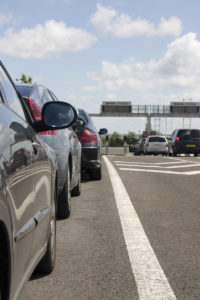
The UK finally completed its exit from the European Union on 31 December 2020, after more than 40 years of membership. Despite the four and a half year build up, many businesses found it difficult or impossible to prepare, due to the lack of clarity over what, if any, trade deal would be agreed. The national sigh of relief on Christmas Eve, as Boris Johnson announced the deal, was swiftly followed by a Brexit hangover, leaving businesses to face the reality of a more complicated trading relationship with the EU. Five months into the UK’s new found freedom, the challenges facing businesses are finally becoming clear.
Trading in goods
Businesses trading in goods bore the brunt of the changes on 1 January 2021. Having left the EU single market and customs union, a customs border now exists between Great Britain (England, Scotland and Wales) and the EU. Northern Ireland has a special dual status under the Northern Ireland Protocol, where EU VAT rules for trade in goods continue, but UK VAT rules apply to services. Many businesses trading in goods with the EU are now having to apply customs procedures for the first time.
Building contractor supplies
Take an example of a UK building contractor, purchasing bathroom fittings from Italy. Prior to 1 January 2021, the UK contractor would have provided its VAT number to the Italian supplier and simply self-accounted for VAT on the goods through its UK VAT return.
The same transaction taking place from 1 January 2021 requires the goods to be cleared through customs by submitting an import declaration, including the importer’s GB EORI number. Submitting an import declaration and complying with customs procedures is not straightforward. Most businesses choose to use a customs agent to do this for them, which inevitably involves additional costs.
Incoterms
The question of who takes responsibility for customs matters is determined by the ‘incoterms’ agreed between the parties and is now an important feature of any cross border transaction involving goods.
Postponed Import VAT Accounting (PIVA)
Import VAT is payable on goods entering Great Britain and possibly also customs duty. For a VAT registered importer, import VAT can normally be reclaimed through the VAT return and, therefore, does not hit the bottom line. A new simplification, known as Postponed Import VAT Accounting (PIVA), means that VAT does not need to be paid at the time of importation, but can instead be paid and reclaimed through the VAT return. This is good for cash flow, but the importer must remember to ask their customs agent to request PIVA on the import declaration.
Rules of Origin
Unlike import VAT, customs duty is a cost and, therefore, needs to be factored into the price of the goods. Although the EU-UK Trade and Cooperation Agreement was announced as a tariff free deal, this is only the case where the goods have ‘EU origin’ or if they have a nil rate of duty based on the tariff classification of the goods. The rules of origin can be hugely complex and will be a concept that many businesses have not dealt with previously. For example, if the bathroom fittings in our example are partly manufactured in China, with some processing, packaging and labelling taking place in Italy, what is the origin of the goods? The answer to this question could make a significant difference to the amount of customs duty, if any, which is payable when the goods enter Great Britain.
The importer is responsible for providing proof of origin, which may be certified by the supplier or a self-certification based on the importer’s knowledge. This is likely to be an area that comes under greater scrutiny from HMRC in due course. Some importers may be storing up a problem by self-certifying, without fully understanding the origin of the goods, potentially leaving them exposed to unexpected duty costs.
Double Duty Costs
Another issue which is becoming increasingly prominent is the risk of double duty costs. Returning again to our example, customs duty paid by the supplier when importing the goods into Italy from China will be built into the price of the goods. If duty is payable again when the goods enter Great Britain, it adds to the price. There may be ways of preventing this, such as use of special customs procedures, but this requires careful planning and preparation.
The above highlights just a few of the issues facing businesses post Brexit. Wherever you are on the Brexit journey, we can help you to navigate the new rules.
The information in this article was correct at the date it was first published.
However it is of a generic nature and cannot constitute advice. Specific advice should be sought before any action taken.
If you would like to discuss how this applies to you, we would be delighted to talk to you. Please make contact with the author on the details shown below.








